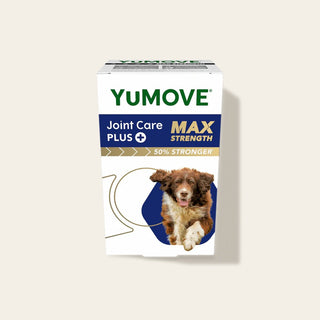

Gastric ulcers in horses
Equine gastric ulcers are caused when acid juices eat away part of the stomach lining. In mild cases, this can simply cause uncomfortable inflammation for your horse; in more serious cases, it can lead to bleeding and perforation of the stomach.
Which horses get gastric ulcers?
People often assume that only racehorses get gastric ulcers. And it’s true that they are particularly susceptible. Up to 93% of racehorses suffer from this problem, largely due to the link between intense exercise and ulcers.
However, 63% of performance horses also get gastric ulcers, along with 37% of leisure horses.
Digestive juices causing trouble

Horses are sensitive in many ways, and their digestive systems are no exception. If something is off with their digestion, it will affect their mood, behaviour and performance.
Horses’ digestive problems stem from the way they have evolved. In the wild, they would naturally graze for around 16-20 hours a day, so there’s an almost constant supply of food trickling through to the stomach. However, today, it’s less common for horses to be able to eat ‘little and often’ in this way.
Horses produce an astonishing 20-80 litres of saliva a day. This helps break the food down as it passes from the mouth and into the oesophagus. When the food reaches your horse’s stomach, it is broken down further by digestive enzymes and acidic gastric juice.
Your horse’s stomach secretes acid all the time, whether or not your horse is eating, and different areas of the stomach have different levels of protection against gastric juices.
The upper area of the stomach, known as the squamous region, doesn’t produce gastric acid and is therefore less protected against its effects. In contrast, the lower area of the stomach, called the glandular region, does produce gastric acid and has more defences in place.
Why horses get gastric ulcers
Horses can develop gastric ulcers for a variety of reasons. With racehorses and performance horses, the cause is likely to be infrequent feeding combined with the stress of intense exercise.
However, any horse can become susceptible to gastric ulcers. If a horse is confined to a stable for long periods, it may feed less often than usual, and develop a gastric ulcer. Travelling and being put in a trailer can make some horses nervous, leading to stress, which is another common cause of ulcers.
In addition, certain medicines such as bute are said to reduce the stomach’s ability to produce a protective layer of mucus.
Horses that crib bite or wind suck might also be more likely to develop gastric ulcers, which could be because they’re stressed.
Signs of gastric ulcers in horses
It can be tricky for owners to diagnose gastric ulcers, but some of the possible signs include:
- Recurrent colic
- Weight loss
- Reduced appetite
- Poor body condition
- Poor performance
- Behavioural changes – e.g. being difficult to ride, refusing to jump
- Pain during girth tightening

Diagnosing equine gastric ulcers
The only guaranteed way to diagnose gastric ulcers is to ask your vet to examine your horse using a gastroscope video camera. For this procedure, your horse will be sedated and must have fasted for 12 hours beforehand, so that their stomach is empty and the vet can gain a clear view of the area.
Your vet will pass a fibre optic camera into one nostril, down the oesophagus and into the stomach, where they will be able to see if your horse has any ulcers. There are two possible types of ulcer they may spot:
- Squamous ulcers in the top region of the stomach
- Glandular ulcers in the lower region of the stomach
Treating your horse’s gastric ulcer
In the short-term, your vet is likely to recommend a course of omeprazole, which you’ll find in brands such as GastroGard and Peptizole. Omeprazole suppresses the secretion of gastric acid in your horse’s stomach, which makes the stomach environment less acid and helps to prevent gastric ulcers recurring.
In the longer term, it’s also advisable to:
- Limit intense exercise
- Ensure your horse can interact with other horses and isn’t confined to a stable for long periods
- Increase pasture time for your horse
- Give your horse constant access to a supply of fresh water
- Avoid periods of fasting
- Reduce activities that may stress your horse, such as travelling.
Share your tips
Do you have any tips for other horse lovers on how to prevent equine gastric ulcers? Please share your ideas with us on Facebook and Instagram. We’d love to hear from you!




